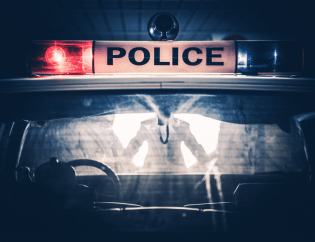
Navigating a drunk driving charge can be overwhelming and unnerving. Having the right lawyer by your side is crucial for a strong defense. To ensure you’re on the right track, it’s important to ask your lawyer the right questions.
Here’s a simple guide to help you engage effectively with your drunk driving lawyer.
1. Understanding Your Lawyer’s Experience
Experience is crucial when it comes to legal defense. Ask about your lawyer’s background in handling drunk driving cases. Understanding their track record can give you peace of mind and insight into their expertise.
One of the most important factors is how many cases similar to yours the lawyer has successfully defended. Enquire about the outcomes of those cases to gauge their effectiveness. An experienced lawyer who has seen a wide range of drunk driving scenarios will likely have developed refined strategies and tactics that could be beneficial to your case.
It’s also useful to find out if they hold any special certifications or are members of organizations related to DUI defense. A board certified attorney in criminal defense is truly an expert. This can be an indication of their commitment to staying updated with current laws and procedures. After all, the legal landscape can be complex and ever-changing, making continuous learning crucial for effective defense.
2. Assessing the Possible Outcomes
Inquire about the range of possible outcomes for your case. This will help you gauge what to expect and prepare accordingly. A skilled attorney will be able to provide a realistic overview of the potential scenarios.
Different states can have varied laws and penalties for drunk driving. Therefore, your outcomes might include anything from dismissal of charges to reduced penalties or even harsher consequences depending on the specifics of your case. Ask your lawyer to walk you through each potential outcome and what circumstances might lead to them.
3. Clarifying the Defense Strategy
Understanding the approach your lawyer plans to take can help you feel more in control of the situation. Ask about the defense strategies being considered and how they will be implemented to suit the specifics of your case.
In some cases, questioning the legality of the traffic stop can be a valid defense strategy. Your lawyer might also explore whether there were any inaccuracies in the breathalyzer or field sobriety tests.
These nuances in strategies can mean the difference between conviction and a more favorable outcome. Knowing the specifics can help reassure you that a structured plan is in place.
4. Evaluating Legal Fees and Costs
Legal proceedings can be costly, so it’s vital to discuss how your lawyer’s fees are structured. Understanding the costs upfront can prevent any financial surprises and allow you to plan financially for the case.
In some instances, lawyers offer payment plans or quote fees based on the stages of your case. It’s important to verify whether the fees are fixed or if there might be additional costs involved, such as expert witness fees, that could accrue as the case progresses.
Having full clarity on this will ensure you’re financially prepared for the journey ahead.
5. Discussing the Timeline of Your Case
A clear timeline provides insight into how long the defense process will take in your case. Discuss the expected duration of your case with your attorney to manage your expectations.
Factors such as court schedules and the complexity of your case can influence this timeline. Be aware the legal system moves slowly...
Your lawyer should be able to give you a rough estimate based on their past cases and experience, which can help you plan your schedule around court appearances and meetings with legal counsel.
6. Exploring Communication Preferences
Smooth communication is key in any legal proceeding. Ask how your lawyer prefers to communicate - be it emails, phone calls, texts, or in-person meetings - to ensure you’ll be able to stay connected effectively throughout the case.
In larger firms, lawyers may have a legal assistant or a team that handles communication on their behalf. Clarifying this will ensure you know who to reach out to for certain questions or concerns.
Regular updates on your case are essential for peace of mind and to be aware of any developments that may require your input or action. Just keep in mind, again, the legal system moves slowly. It may be weeks before you get communications from your lawyer and their legal team.
7. Assessing the Likelihood of Going to Trial
Understanding whether your case is likely to go to trial can significantly influence your preparation process. Ask your lawyer if he's taken DWI cases to trial. Ask them about this possibility and what steps they will take if a trial becomes necessary.
Some cases are resolved through plea deals or negotiated settlements, which can be less time-consuming and costly than a trial. Your lawyer should be able to estimate the chances of reaching such a resolution versus the necessity of a trial based on the specifics of your case. Knowing this can help you mentally and logistically prepare for either path.
Give Us a Call
If you’re facing a DWI charge, the penalties are severe here in Texas. Please don’t go it alone. Let’s talk about how we can help. Contact us today (325) 326-5962 to get started.











